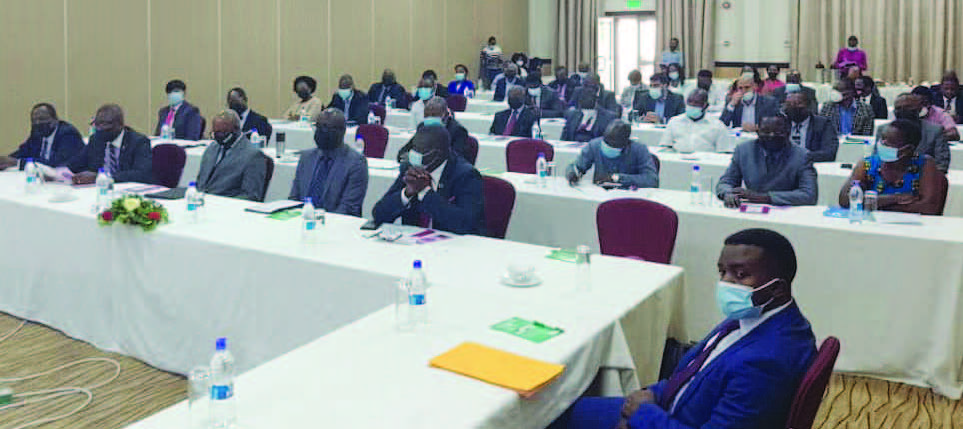Corruption impacts businesses, says MCCCI
Malawi Confederation of Chambers of Commerce and Industry (MCCCI) has decried corruption in the public sector, saying it affects the performance of the private sector.
MCCCI president James Chimwaza expressed the sentiments yesterday in Blantyre during a business symposium on the National Anti-Corruption Strategy (Nacs II) Anti-Corruption Bureau (ACB) meeting for the private sector under the theme Harnessing Synergies in Fighting Corruption in Malawi.

He said the meeting was crucial for the private sector, given its role in the country’s development agenda.
Said Chimwaza: “As private sector, we realise that there are some roles we have to play, for example, changing the culture and priorities in our organisations to ensure the country develops.
“We need to begin to tell our workers the evils of corruption and the importance of resisting the same as this will enable us to be on track in the fight against corruption.
He said with rampant corruption, the country cannot be competitive on the local and international markets; hence, the need to address the issue to achieve the country’s growth aspirations.
“With corruption, the money is what matters and not the quality of the products or services. We thus have to strive to do clean business so that people get value for money,” said Chimwaza.
On his part, ACB deputy director Elias Bodole said if left unchecked, continued revelations of the plunder of public resources will throw into jeopardy the country’s prospects of attaining and achieving Malawi 2063 aspirations.
He said the private sector, which is the fundamental pillar in the socio-economic development of the country, has continued to engage in corruption; hence, deterring meaningful economic growth.
“Corruption is one of the major deterrents to the socio-economic growth of our country and has grown out of hand in all sectors of our economy,” said Bodole.
He said the private sector has a duty to take a leading role in mainstreaming anti-corruption initiatives in their institutions to contribute to the vision embedded in Nacs II of attaining a corruption-free Malawi.
He said: “When we talk of corruption in government, it mostly centres on procurement and the private sector is the major player that deals with government.
“The private sector thus has the role to embrace and engage in clean business with the government.”
Bodole said corruption is also rampant within the private sector and could affect the country’s development agenda.
ACB developed the Nacs II in 2019, which runs up to 2024.
The strategy aims at fighting corruption at sector level where each sector is expected to identify its own risks and devise ways of how to fight the vice.
According to an overview of the State of Corruption in Malawi by ACB, perceptions of the main perpetrators of corruption put public officials as the worst at 44 percent followed by politicians at 30 percent while citizens are at 13 percent.
On the perceptions of prevalence of corruption among selected institutions, government officials still top with 91 percent followed by non-government organisations officials at 89 percent and the Directorate of Road Traffic and Safety Service at 87 percent.






One Comment